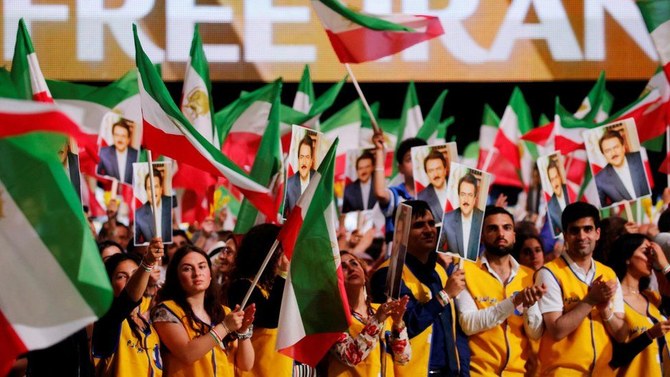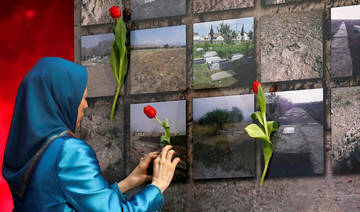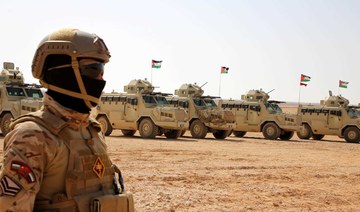BRUSSELS: The trial of four Iranians charged with an attempted terrorist attack on a rally organized by an exiled Iranian opposition group in Villepinte, near Paris, begins Nov. 27 in Antwerp, Belgium. It is not the first time that Iran has been accused of plotting or carrying out attacks against opponents in Europe.
In January last year, the European Union introduced sanctions in response to attacks planned by Iranian authorities in a series of European countries. The EU froze the assets of the Ministry of Intelligence and Security (MOIS), as well as two individuals — Saeid Hashemi Moghadam, a senior official in the MOIS, and Assadollah Assadi. The latter is one of those who will stand trial in Antwerp, charged with plotting the Villepinte attack on the Paris-based National Council of Resistance of Iran.
The sanctions were also a result of an investigation by The Netherlands’ intelligence services, which concluded that the Iranian regime was behind the assassinations of two Dutch nationals of Iranian origin — Ali Motamed, an opponent of the Tehran regime, in Almere in 2015, and Ahmad Molla Nissi, one of the leaders of the Arab separatist movement in Iran (ASMLA), in The Hague in 2017
In a letter to Parliament, the Dutch authorities claimed to have uncovered “strong indications that Iran was involved in the liquidation of two Dutch citizens of Iranian origin.”
******
READ MORE: Two years after failed bomb plot, Iranian opposition rallies backers online
Suspects in plot to bomb Iranian opposition rally in France to be sent to Belgium
******
And in 2018 Denmark revealed that an Iranian “agency” had attempted to eliminate three ASMLA members in exile on Danish territory. The Danish government recalled its ambassador to Tehran as a result of the plot.
“Denmark cannot in any way allow individuals linked to Iranian intelligence services to instigate attacks on people. It is the Iranian government, the Iranian state that is behind (this),” Anders Samuelsen, the Danish foreign minister at the time, said on October 30, 2018.
As a result of these cases, the European Union has toughened its tone against Iran. The scope of its sanctions to date remains diplomatic — including the recall of ambassadors, the expulsion of diplomats, and the freezing of financial assets. The Antwerp trial, however, will shift the denunciation of Iranian state action on European soil into the judicial sphere and is expected to further isolate the Iranian regime.
The regime has been named as the sponsor of the attempted attack in Villepinte by the European intelligence services and by the Belgian justice system.
Assadi reportedly used his Iranian diplomatic passport as a cover for his espionage work for the MOIS, which involved collecting information on Iranian opponents in European countries.
Assadi, who was the third counselor at the Iranian embassy in Vienna, now faces up to 20 years in prison.


























